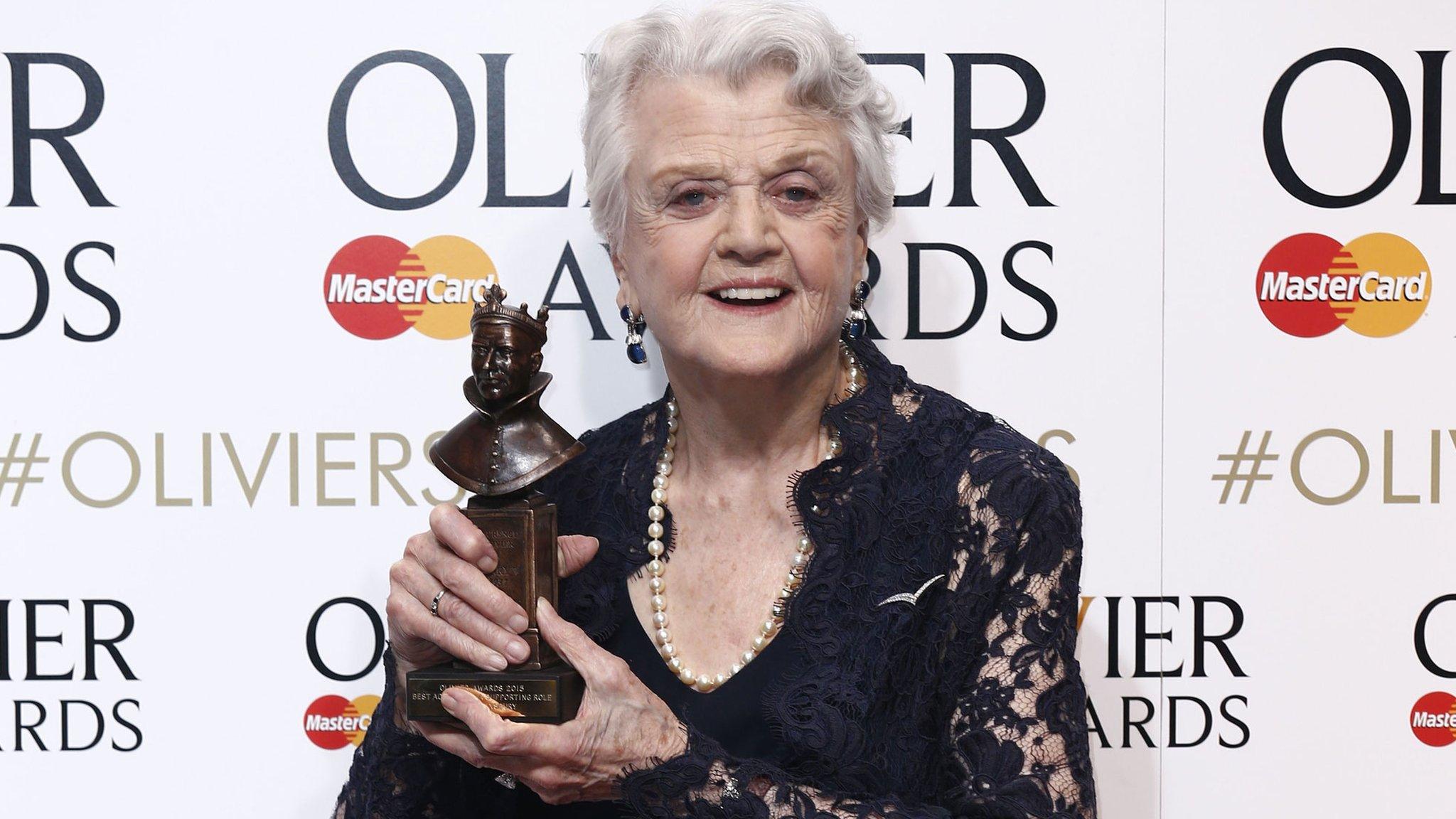Playwright Mike Bartlett's 'astounding' year
- Published
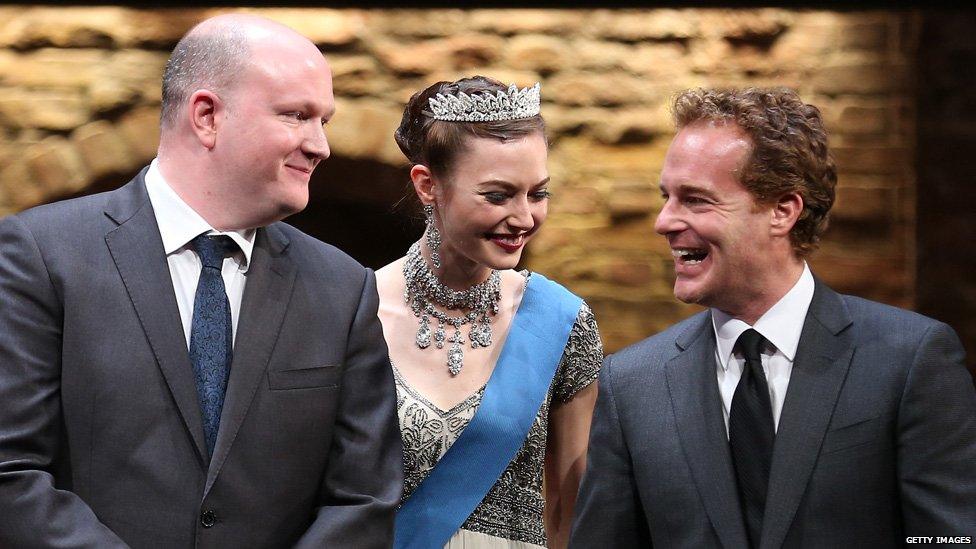
Playwright Mike Bartlett (left) with cast members, on the opening night of King Charles III on Broadway
For playwright Mike Bartlett, 2015 was a remarkable year. In the Spring came twin Olivier awards - one for his 'future history play' King Charles III and the other for the short drama, Bull.
Charles III crossed the Atlantic to Broadway, while at home the five-part BBC One drama Doctor Foster impressed audiences and critics. In 12 months, Mike Bartlett has become one of the highest-profile dramatists around - an achievement he puts down mainly to lots of work.
Bartlett pauses backstage to catch up with the cast of Bull before a midweek matinee. With some productions a slight drop in post-Christmas energy levels might be expected, but Bartlett's play - back for a second run at the Young Vic - is about the acute nastiness of workplace bullying. The performers need to focus unremittingly on the author's exacting dialogue.
Susannah Fielding plays Isobel, who conspires to undermine the self-confidence of an office colleague. "Mike has written a short but very intense and precise play. Audiences have already told us that an hour's as long as they can take - and it's meant as a compliment".
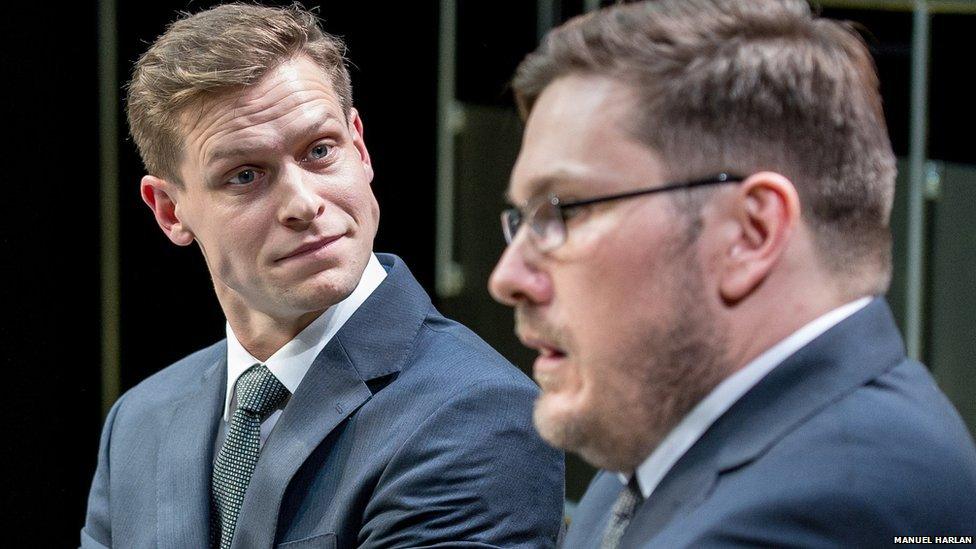
Bull - currently playing at London's Young Vic - takes place in a set akin to a boxing ring
At least in its title, Bull could be a companion piece to his 2009 hit, Cock, at the Royal Court in London. That production starred Ben Whishaw and Andrew Scott.
"Actually the two plays were started at exactly the same time," explains Bartlett, who, at 35, has reached a level of acclaim few writers ever reach.
"I was doing a writer's exchange in Mexico City where they have both cock-fighting and bull-fighting. I went to a bull-fight and I was struck that really it's not a sport at all, it's a blood ritual.
"It elicited something disturbing in the audience and yet it was thrilling. I tried to think what might be the equivalent here."
Audiences at the Young Vic enter to find themselves surrounded by crowd noise and facing something akin to a boxing ring, which later becomes an arena for a bull-fight.
But the title Bull also evokes the concept of bullying. Bartlett says he knew at once his story had to take place in an office environment. "I didn't want a school playground. I wanted to ask why horrible bullying happens between intelligent adults.
"We've all been in situations where what starts as banter becomes nastier and the situation turns and suddenly there's a victim. I'm asking why we seem to enjoy cruelty."
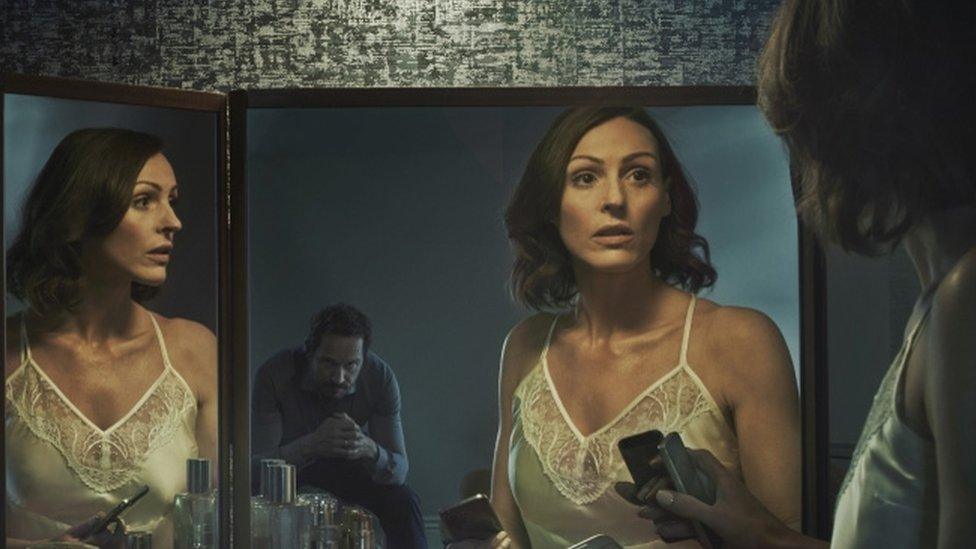
Doctor Foster saw Suranne Jones play a GP faced with her husband's long-term infidelity
The play is about the struggle between Isobel and two colleagues to secure just two jobs. One scene sees the gym-trained Tony (played by Max Bennett) pulls up his shirt for several minutes to inhibit Thomas (Marc Wootton) with his masculinity.
"It intrigued me why all these City people are such gym-users," Bartlett says. "It's only a thin shirt concealing the muscle and sinew beneath and there's something animalistic about what Tony does.
"Someone told me about a convention in the City that when you attend a business meeting people usually ignore the food that's supplied. Because if you help yourself to a sandwich or even a biscuit that shows human weakness - that maybe you're not in control. Tony uses his physique to inhibit and to bully."
Cracks in relationships thinly masked by social convention also featured strongly in Doctor Foster, the first series of which played on BBC One in September. A second series is in preparation, again with Suranne Jones as the small-town GP.
"Doctor Foster has been a great experience. I was approached by the production company Drama Republic who had liked my stage work and they knew The Town, which I wrote for ITV. Together we decided where we wanted to go and what we would pitch to the BBC.
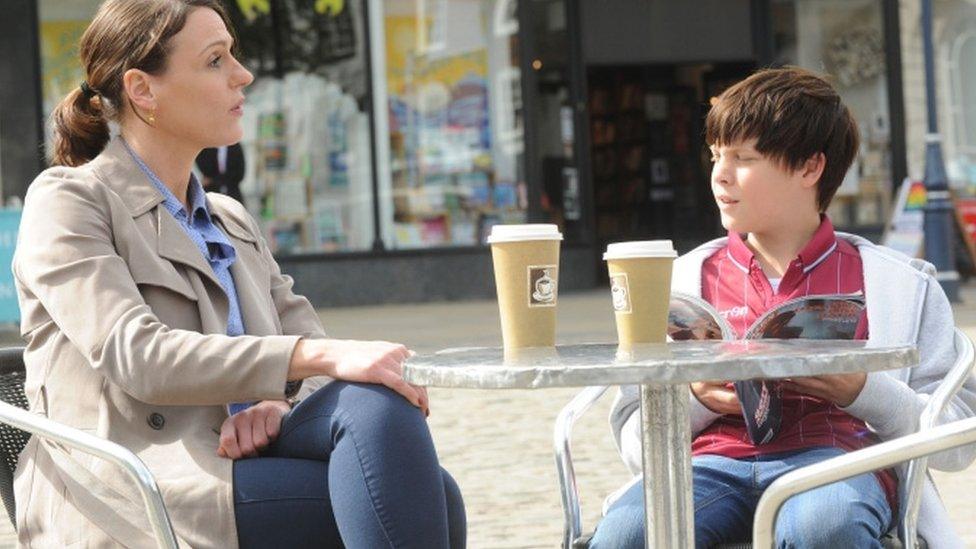
A second series of Doctor Foster has been commissioned by the BBC
"It's fantastic to be working with producers who have real confidence in the line-by-line stuff and the characterisation. It's a huge gesture of confidence.
"I knew I was dealing with five hours of drama on BBC One. On the one hand, you want it to be as authored, as a play you might write for the theatre. But equally you want everyone on board. You don't want to be fighting the BBC - you want everyone there to love it. It's not the same process as working at the Almeida or the Royal Court, but it's not a bad way to work."
In fact in 2015 Bartlett did have a new play at the Almeida theatre in London, called Game. But in October his big adventure was taking King Charles III - which opened at the Almeida in 2014 - to a very different venue: the Music Box on West 45th Street in Manhattan.
The play is a fantasy about what might happen if Prince Charles, having become monarch, refused to give royal assent to a major piece of legislation.
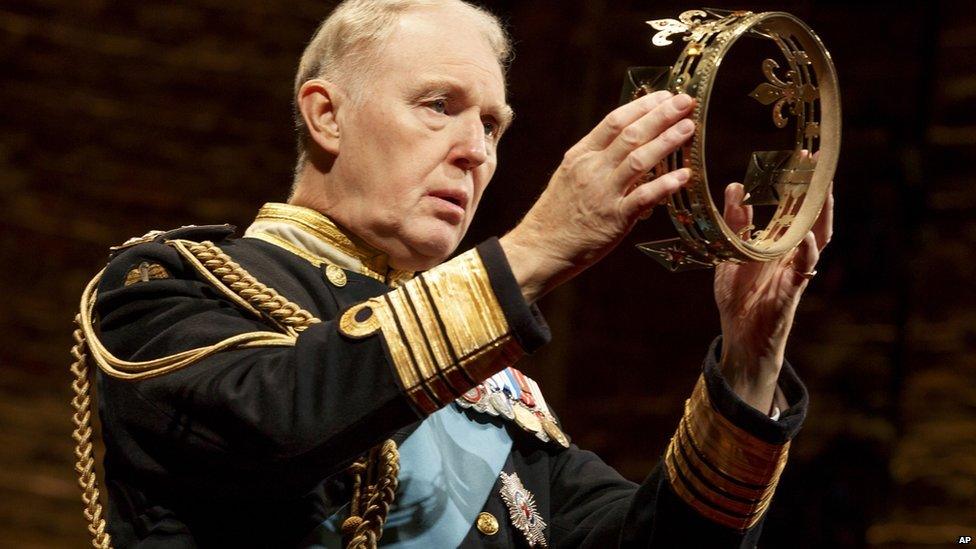
King Charles III won the Olivier award for best new play
"We did wonder whether a play about the royal family would work in America. In Britain many people love the royal family and other people don't - but either way we own them and we have an opinion and we know a lot about them. It's as though they're our own family.
"So initially we thought we'd make a lot of changes for Broadway, but we put half of them back before opening night.
"I thought people in New York might be baffled by the British constitution and we'd have to spell things out. But Helen Mirren had done a lot of the work for us in The Audience. New Yorkers are laughing in the same places as in Britain - but also they pick up on it being a sort of Shakespearean tragedy, which delights me."
Two Olivier awards, a Broadway transfer, a hit BBC series and a play at the Almeida seems an indecently large haul for any writer in just 12 months.
"It's been an amazing and astounding year. It's also meant a lot of work - but in a good way. I love what I do and I suppose I like work generally. I am so lucky to be paid to do something I love."
- Published7 December 2014
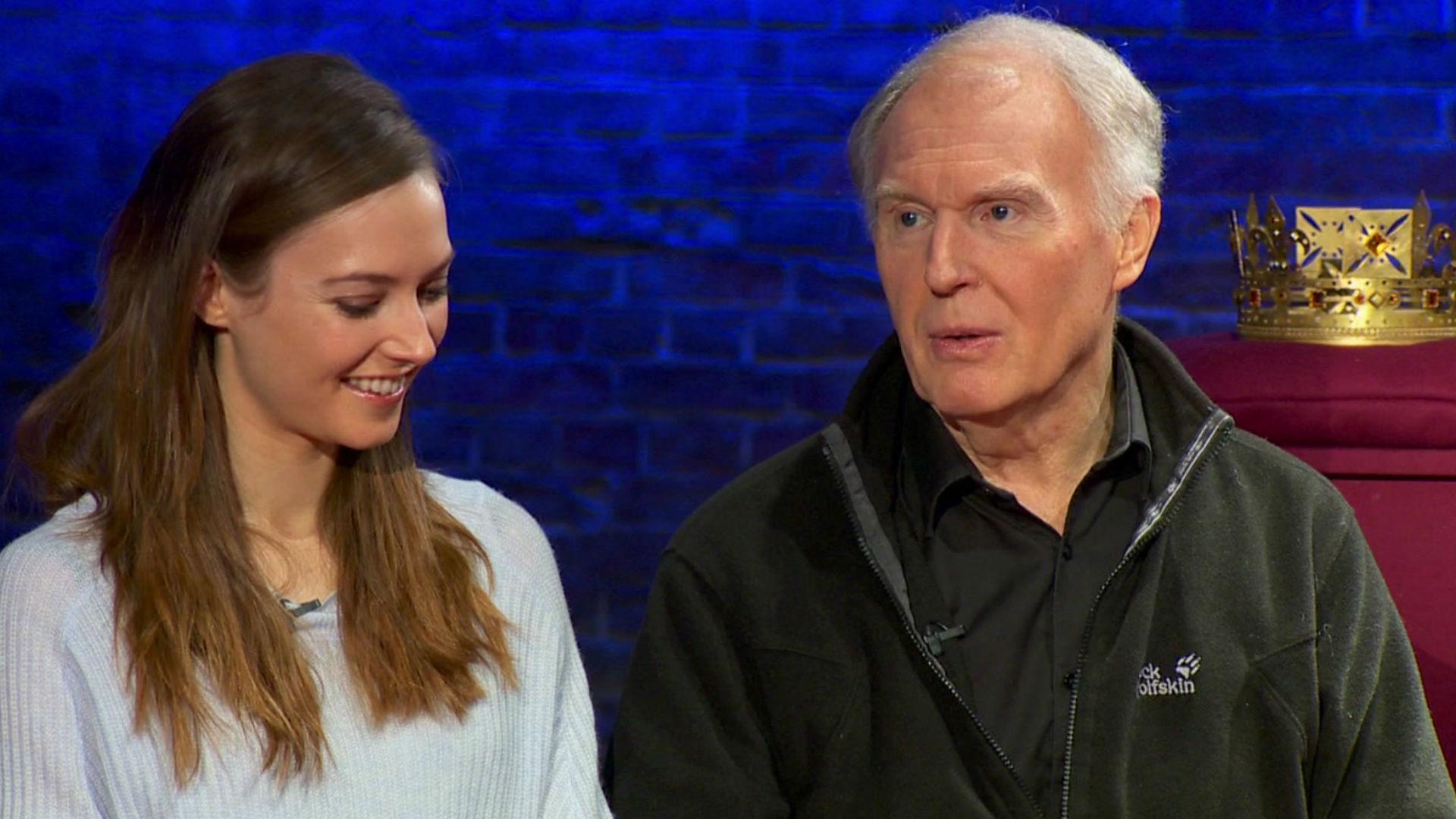
- Published13 April 2015
